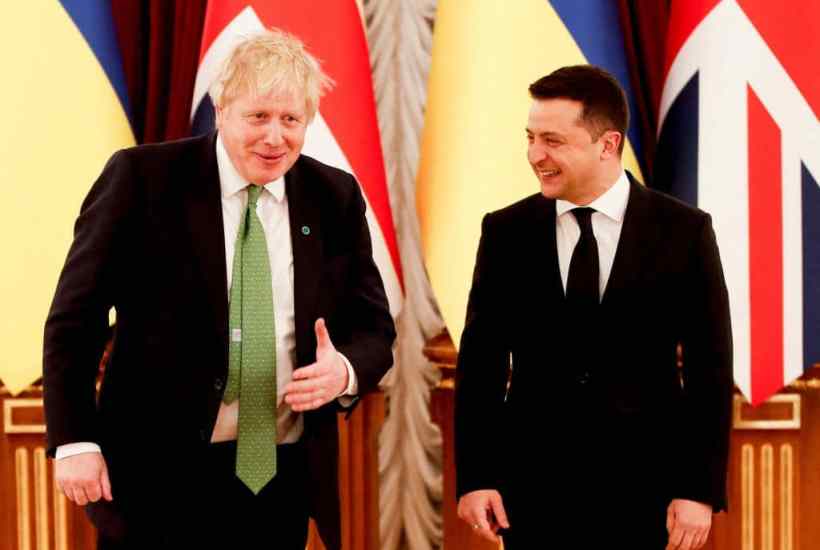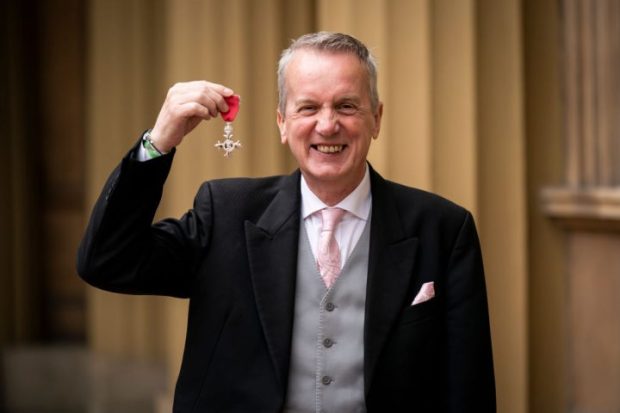‘Every human life has many aspects,’ said the novelist Milan Kundera. ‘The past of each can just as easily arranged into the biography of a beloved statesman as into that of a criminal.’ Of no one has this been truer in recent days than our departing Prime Minister Boris Johnson. To read some of the political obituaries of him – Andrew Rawnsley’s in the Observer was typical (‘disgraced the office… wild mayhem… pathologically brazen… serial debaucheries… lord of misrule’) or the round-up of panellists’ views in the Guardian (‘The stain of Johnsonism will remain for decades’) – you might think the country had until last week been governed by the secret lovechild of Robert Mugabe and Elena Ceausescu. For his detractors all Boris needed to do was round up his followers, stage a champagne-fuelled scuffle on the lawn before Parliament, and the parallels with Trump would have been complete. Indeed, you sense his haters’ disappointment that no such final contretempshas taken place.
But move a thousand or so miles to the east, and the view is very different. For Ukraine is something that Johnson undoubtedly got resoundingly right. It’s worth recalling the particulars here. Britain began delivering anti-tank weapons to Ukraine as early as January 2022 when other western nations were making their excuses and muttering about the dangers of an armed Ukraine. At the Munich Security Conference in February, before Putin’s war had begun, Johnson reminded the world that Ukraine was a ‘democratic state, a country that has been free for a generation’, and that assurances of support had been given to it by the West: ‘How hollow, how meaningless, how insulting those words would seem if – at the very moment when their sovereignty and independence is imperilled – we simply look away.’
Johnson was among the first western leaders to defy his security detail and make the trip by train to Kyiv as the shells were falling, and to be filmed walking with Zelensky in the city’s streets. He committed $2.8 billion in military aid to Ukraine – a figure second only to America – giving a further $1.8 billion in humanitarian and economic aid and agreeing to train 10,000 Ukrainian soldiers in the UK. In a speech to the Ukrainian parliament, he said it was the country’s ‘finest hour’ and that the Ukrainians had shown the ‘energy and courage of lions’, and though the language was cheesy-Churchillian, the point hit home. Meeting Zelensky, he urged ‘no compromise’ with Putin, but to fight for all-out victory. To see how this played with the Ukrainian public, one need only consider the streets named in honour of him in several Ukrainian cities, or his being made an honorary citizen of Odessa, or even having a croissant christened after him in a Kyiv bakery, whose owner described Johnson to the Telegraph as having ‘some amazing qualities as a person.’ In this situation, if few others, Johnson seems to have been at his best.
There his passing is loudly mourned, and people are openly regretting his departure. ‘We all heard this news with sadness,’ said President Zelensky last week, ‘Not only me but the entire Ukrainian society.’ Ukrainian presidential adviser Mykhailo Podolyak said Johnson was ‘a hero’, with foreign minister Dmytro Kuleba chiming in that he was ‘a man of no fear, ready to take risks for the cause he believes in.’ Nor are there merely the standard political blandishments: both Ukrainian National Rail and the Silpo line of supermarkets have, in memoriam, altered their logos to include Boris’s crazy thatch of hair.

The sadness, as Zelensky said, seems to be on a personal level as well. As Yura, a political journalist from Kyiv told me this week, ‘It’s hard to accept his departure. He’s not just a friend of Ukraine, he is dear to us. It’s not for nothing we call him “Johnsonyuk” here.’ There was, he added, a meme that had done the rounds on the Ukrainian internet recently, showing two friends: ‘One who calls in times of trouble and reassures you, and the kind who comes without a call and helps in real life. That’s why Boris won the hearts of Ukrainians.’ One war-sceptical Russian colleague said that Boris Johnson’s actions had finally convinced him of the point of Brexit, as Britain pursued its own policy on Ukraine free of the obstructive ‘Realpolitik’ of countries like France and Germany. A Kyiv pensioner, Volodomyr, confirmed: ‘Europe blocks the supply of weapons, but Britain sends them.’
Throughout the post-Soviet world, Johnson has done much for Britain’s image. ‘I like him because he’s not afraid,’ enthused one Georgian. ‘I see what he has done for Ukraine and feel he would do the same for Georgia if the Russians invaded.’
‘Until February,’ a psychologist from Donbass told me, ‘I considered the British to be cold-blooded, stiff, indifferent, pragmatic.’ But, she added, ‘in this situation [they] showed their best qualities: determination, courage, compassion, desire to help. Boris does not throw words to the wind; he keeps his promises.’
Some people in the UK have looked at all this and sniggered that Ukrainians have read Johnson wrong. But until you have seen Ukraine’s desperate situation and the range of politically motivated international responses, such a judgement is ill-informed.
Nor are the Ukrainians starry-eyed or naïve about Johnson the politician. They recognise his mixed motives for supporting Ukraine – he is a political animal, after all, and the rapidly changing governments and murky alignments of the past 30 years in their country have hardly left the Ukrainians as political Pollyannas. As the journalist Peter Dickinson of the Atlantic Council’s Ukraine Alert Service put it, the Ukrainians ‘are inclined to assume a degree of self-interest in even the noblest of crusades and see nothing wrong with the British PM benefitting politically from his support for Ukraine.’
They aren’t fazed either, Dickinson added, by the Churchill factor in Johnson’s behaviour and his desire to relive his hero’s glories: ‘On the contrary, the Ukrainian public overwhelmingly shares Johnson’s vision of Vladimir Putin as a modern-day Adolf Hitler and welcomes the UK leader’s commitment to the Ukrainian cause.’ One Kyiv resident told me she had recently watched the 2017 film Darkest Hour in which Gary Oldman had played Churchill: ‘The British fought alone in the second world war, defended their freedom and fought famine and blockade… I had a hope that if Britannia is for us, then this is a guarantee of victory.’ The words may seem naively optimistic, but they give some sense of Britain’s current standing on the Dnieper.
Few could deny that Johnson has at times made a royal Eton Mess of domestic government or that his local reputation is, as it stands, in a similar state to Mariupol. But abroad, in far-off countries of which our knowledge is sketchy, he is scarcely without honour. There may be a line of politicians jostling furiously now to step into Johnson’s scuffed Oxford brogues, but in Ukraine at least this ex-leader – who often seemed at home more like a music hall turn than serious statesman – will be a very hard act to follow.
Got something to add? Join the discussion and comment below.
Get 10 issues for just $10
Subscribe to The Spectator Australia today for the next 10 magazine issues, plus full online access, for just $10.



















Comments
Don't miss out
Join the conversation with other Spectator Australia readers. Subscribe to leave a comment.
SUBSCRIBEAlready a subscriber? Log in